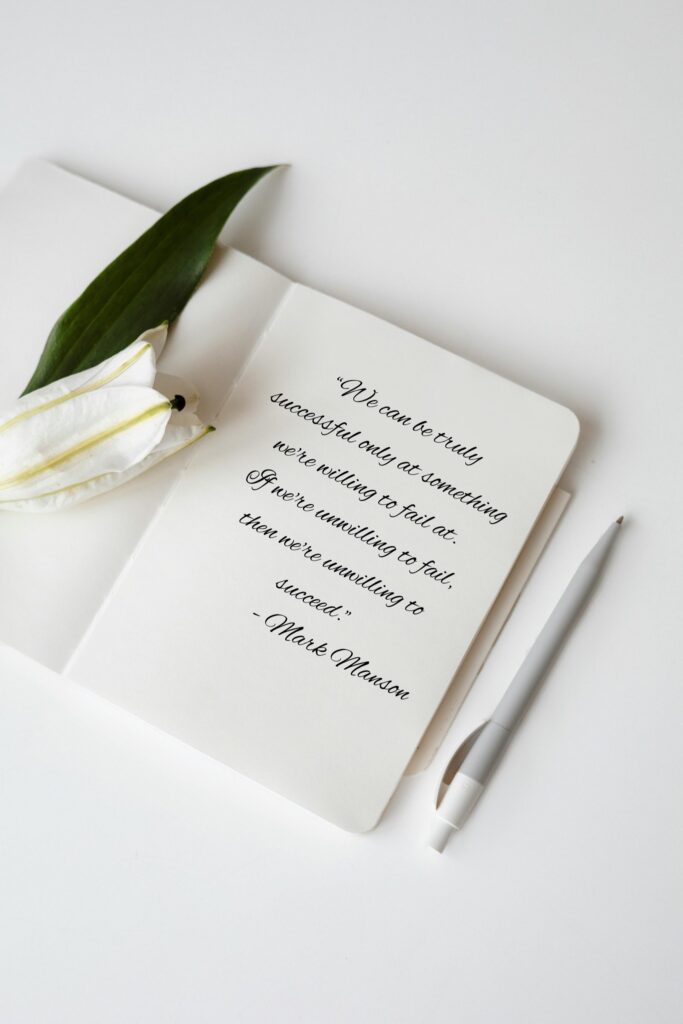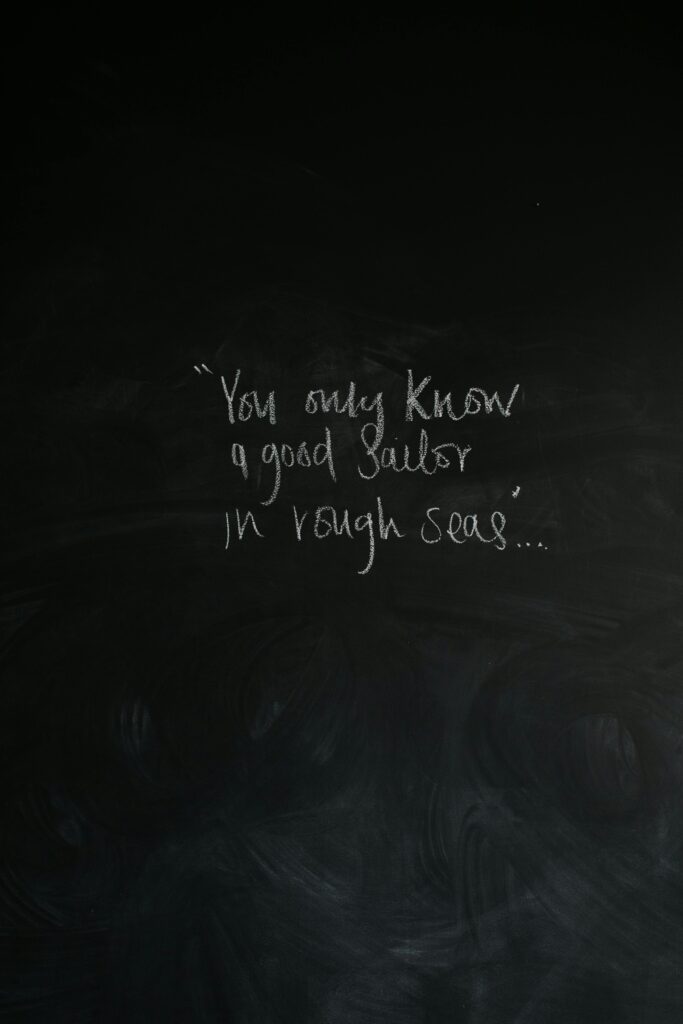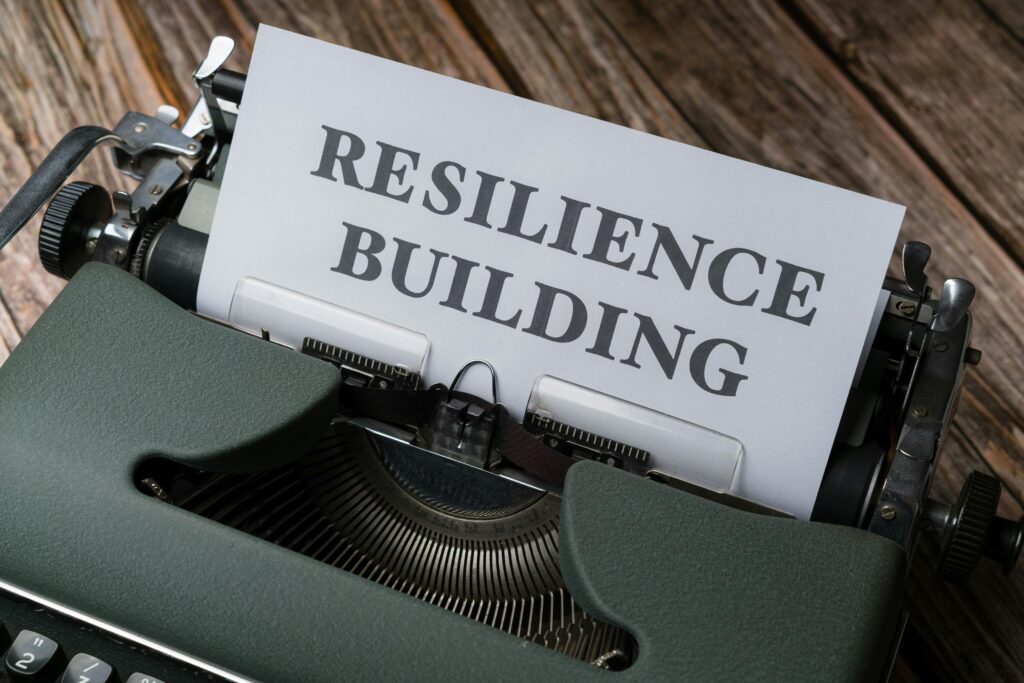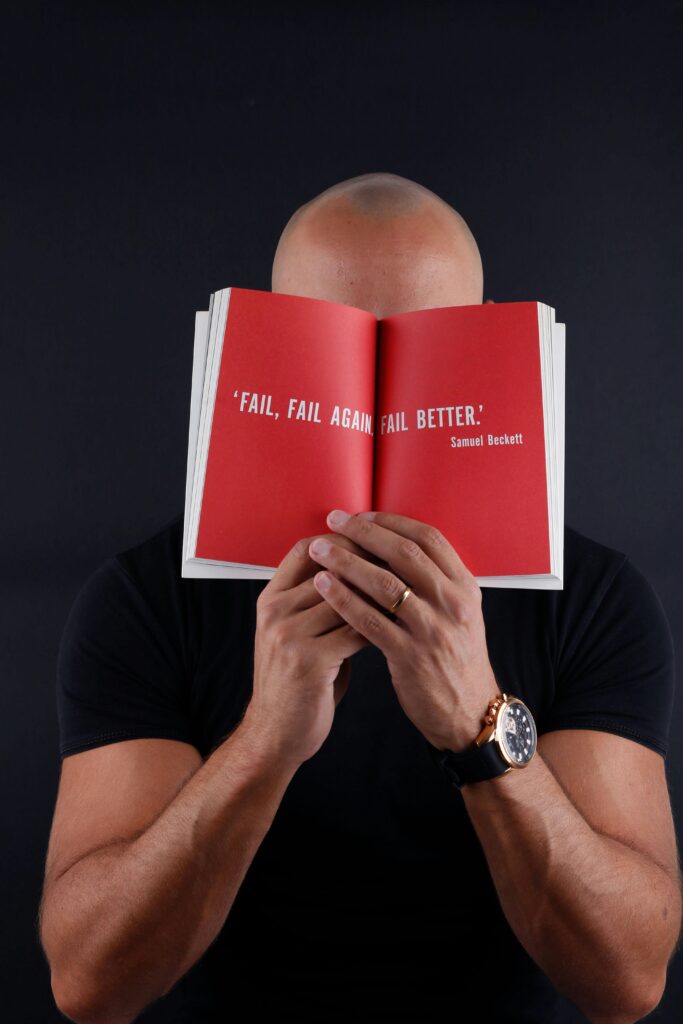
By Shradha Sinha – June 17, 2024
Table of Contents
Flipping the Script on Failure
Failure. Just hearing the word can give us the heebie-jeebies, often bringing on thoughts of disappointment, inadequacy and even defeat. But what if I told you that failure is not the big bad wolf it is often painted to be? In fact, it is quite the opposite! Failure is like that quirky, underrated character in a film who turns out to be the real hero. Absolutely, you heard that correctly—failure is the overlooked champion in the grand narrative of personal growth and success.
In this article, we are going to flip the script on failure. We will explore how embracing those cringe-worthy moments can actually become your secret weapon for unstoppable personal growth. And do not worry, we will keep things light and fun along the way. So, buckle up and get ready to see failure in a whole new light!
Understanding Failure

Defining Failure
Failure is often defined as not hitting the mark, missing the goal or not quite living up to what we hoped for. It can show up in many forms, from those little daily hiccups to those big, life-changing moments. However, failure is not about the event itself; it is all about how we perceive it and what we do next. Do we throw in the towel? Or do we get up, dust ourselves off and try again? That is where the magic happens.
Common Misconceptions About Failure
A lot of people think of failure as a full stop, a big, bold declaration that says, “You are not good enough”. This idea often comes from having a fixed mindset where we think our skills and abilities are fixed and unchangeable. But in reality, failure is more like a speed bump on the road to success. Sure, it slows us down for a bit, but it also teaches us valuable lessons and makes us more resilient.
The Psychological Impact of Failure

We have explored various factors that affect our mental well-being on this blog, from the negative impacts of striving for the perfect body to how clutter can increase stress and anxiety in our lives. However, failure can have even more profound effects on our well-being. It can stir up feelings of sadness and anxiety, causing us to question if we are on the right path or if we should give up, ultimately shaking our confidence and leading to low self-esteem. While these emotions are common, there is a silver lining: they can be mitigated by reframing failure as a natural and valuable part of the learning process.
Overcoming the Fear of Failure

The fear of failure can be paralysing, holding us back from stepping outside of our comfort zones. Overcoming this fear involves changing our mindset and viewing failure as an opportunity to grow and improve, rather than a reflection of our worth. Understanding that the psychological impact of failure is not just about the lows—it is also about the highs that come after—can be transformative. By adopting this perspective, we can turn setbacks into stepping stones towards success.
Failure as a Learning Tool

Lessons Learned from Failure
Every failure is a wealth of lessons. It teaches us what does not work, highlights areas ripe for improvement and offers insights that might otherwise remain undiscovered. By embracing these lessons, we can find new ways forward, armed with the wisdom that only failure can provide.
Notable Success Stories Born from Failure
History is filled with stories of successful individuals who faced significant failures before achieving their goals. Take Thomas Edison, for instance. He is known for his unwavering commitment to innovation despite encountering many setbacks on the path to inventing the incandescent light bulb.
Similarly, consider J.K. Rowling, whose manuscript for Harry Potter faced rejection from multiple publishers before eventually being accepted. Today, her books have enchanted millions of readers worldwide.
Steve Jobs, too, experienced public failure when he was ousted from Apple, the company he co-founded. Yet, this setback led him to new ventures and eventually a triumphant return to Apple where he spearheaded some of the most revolutionary products of our time.
Building Resilience Through Failure

The Role of Resilience in Personal Growth
Resilience is basically the capacity to recover from setbacks and continue progressing, playing a crucial role in personal growth. The success stories mentioned above are a testament to the power of resilience and how failure is often used as a powerful tool for building it.
Strategies to Build Resilience
Strategies for building resilience include developing a positive mindset, setting realistic goals and maintaining a strong support network. It also includes cultivating self-compassion and gaining insights from mistakes without overly criticising ourselves. Mastering these strategies, not only help us bounce back stronger from failures but also help to experience personal and professional growth.
How Failure Drives Innovation

Failure is a powerful driver of innovation. When things do not go as planned, it forces us to think creatively and explore new solutions. This process often leads to unexpected breakthroughs that can transform industries and change lives.
One notable example is the story of the Post-it Note. Originally, it was an unsuccessful adhesive experiment by 3M, a multinational conglomerate known for its innovations in various industries including healthcare, consumer goods and electronics. However, instead of discarding the idea, a researcher named Spencer Silver saw potential in its weak adhesive properties. This led to the invention of the iconic Post-it Note which has since become one of 3M’s most successful products. This case highlights how failure can pave the way for innovative solutions that have a profound impact.
Fixed Mindset vs Growth Mindset

A fixed mindset is like wearing blinkers; it makes us believe that our abilities are set in stone and we cannot change. On the other hand, a growth mindset is like having a pair of wings, letting us see our abilities as flexible and capable of improvement through effort and perseverance. Embracing a growth mindset is crucial for turning failure into an opportunity for growth. It is about recognising that our talents and intelligence can be cultivated through time and dedication.
How to Cultivate a Growth Mindset
Cultivating a growth mindset involves a few key practices. First, embrace challenges rather than avoiding them. Regard them as chances to learn and grow. When setbacks happen, keep going and pushing forward. Effort is your friend here; see it as the path to mastery rather than a sign of inadequacy.
Learning from criticism is another vital part of developing a growth mindset. It is important to tell the difference between destructive criticism which can be harmful as well as unhelpful and constructive criticism which offers valuable insights for improvement. Utilise constructive feedback as a means for growth rather than taking it personally.
Additionally, be careful about comparing yourself to others. Instead of feeling threatened by their achievements, find inspiration in their successes. Celebrate their wins and use them as motivation for your own potential. Remember, everyone’s journey is unique and comparing yourself to others can hold back your progress.
Societal Perceptions of Failure

Society often gives failure a bad rap, treating it like a mark of inadequacy. This negative perception can stop people from taking risks and going after their dreams. But let’s be honest—everyone stumbles now and then! Imagine if we all shared our bloopers reel instead of just our highlight reel. We would soon come to understand that failure is a shared experience.
Think about it: we celebrate babies for their wobbly first steps, even though they fall countless times. Why should it be any different for adults? Whether it is a business venture that did not pan out or a project that fell flat, these missteps are part of the journey. The truth is, every successful person has a story of failure behind them and by changing how we view these stories, we can create a culture where growth and innovation can truly thrive.
Changing the Narrative Around Failure
To change this narrative, we first need to alter the way we think about failure, we need to start talking about it openly and honestly. Just as we share our success stories, we should share our failures too.
Moreover, we should celebrate the effort and courage it takes to try something new, regardless of the outcome. This can encourage people around us to take risks without the fear of judgment.
The objective is to foster a culture where failure is not treated as a source of shame, but something to be embraced. After all, some of the greatest innovations and breakthroughs in history came from people who dared to fail and learned from their experiences.
Failure in Education

Academic Failures and Their Lessons
Academic failures often pack a punch with lessons that shape our personal and professional growth. They teach us resilience, the importance of perseverance and the value of learning from mistakes specifically in an academic context. In facing setbacks such as poor grades or unsuccessful exams, we discover our strengths and weaknesses, gaining a deeper understanding of ourselves and our aspirations within the academic realm. These experiences not only build character but also arm us with essential academic skills that cannot be found in any textbook.
How to Bounce Back from Educational Setbacks
Bouncing back from academic failures starts with giving yourself a moment to acknowledge your feelings—whether it is frustration or disappointment. Reflect on what went wrong and why, without being too hard on yourself. Use this reflection to set achievable goals and create a positive action plan. This plan should include active learning techniques, practising past papers as well as quizzes and joining study groups to help you move forward. Also, make sure to seek support from teachers, peers or mentors who can offer guidance and encouragement.
Additionally, YouTube can be a fantastic resource for learning. Consider subscribing to educational channels that align with your subjects of interest, offering visual explanations, tutorials and even exam tips.
Dealing with External Pressures
Sometimes, academic setbacks can stem from external pressures, such as pursuing a course due to family expectations rather than personal interest. This can make it challenging to stay motivated and focused, even if you are capable. It is important to remember that failure in such cases is not a reflection of your abilities but rather a mismatch between your interests and the course you are pursuing. If this sounds familiar, consider discussing your concerns with your family or academic advisors to explore other options that align better with your passions.
Failure in Personal Relationships

Dealing with Failure in Friendships and Romantic Relationships
Dealing with failure in friendships and romantic relationships can feel like navigating through a murky maze with a faulty torch. It is tricky, but not impossible! Just like finding that one last puzzle piece under the sofa, it requires patience. Sometimes, things do not click the way we hope and that is okay. But through this process, we gain essential skills like effective communication, boundary-setting and a deeper understanding of others’ needs and interests. It is akin to a crash course in human dynamics!
Learning and Growing from Relationship Failures
Going through a breakup or a rough patch in a relationship is way more than just heartache. These experiences teach us so much about ourselves and how we connect with others. They help us build empathy, patience and resilience. And guess what? All those tough lessons lead to stronger, more fulfilling relationships down the line.
When a relationship does not work out, it can feel like the end of the world. But from everything we have discussed so far in this blog post, it is clear that each failure is actually a stepping stone towards better things. We start to understand what we truly want and need in a partner. We become more patient, not just with others but with ourselves. We realise that everyone has flaws and that perfection is overrated. This newfound perspective makes us more compassionate and open, qualities that are essential for any healthy relationship.
In essence, relationship failures are opportunities in disguise. They prepare us for future relationships where we can truly flourish, armed with the wisdom and strength gained from our past. So, next time you are feeling down about a breakup, remember – it is not just an end, but a beginning of something much more meaningful and beautiful.
Failure in Professional Life

Career Setbacks and Their Impact
Career setbacks can be a real blow, shaking our self-esteem and clouding our future prospects. But they are more common than you think and they offer a golden opportunity to reassess our goals, pick up new skills and even explore different career paths. Trying new career paths is essential for personal growth, pushing us out of our comfort zones and helping us discover what truly excites and motivates us.
Turning Professional Failures into Fuel for Career Growth
Consider professional failures as a type of career fuel. By taking a closer look at where things went wrong, we can pinpoint what needs improvement and tweak our strategies. It is a bit like troubleshooting – you figure out what is off and fix it. This proactive mindset transforms these setbacks into steps towards career advancement.
Perhaps it is time to upskill, pivot to a different role or even dive into a new industry altogether. Embracing these moments not only builds resilience but also sparks creativity and innovation, setting the stage for a more dynamic and successful career journey.
Celebrating the Beauty of Failure

So, there you have it—failure is not the villain of our story but the unsung hero that propels us towards growth, innovation and self-discovery. Whether it is stumbling in your career, navigating rocky relationships or facing academic setbacks, each misstep is a golden opportunity in disguise. By embracing failure, we unlock resilience, creativity and a deeper understanding of ourselves.
Remember, it is not about the fall but how we rise after. So, next time you face a flop, see it for what it truly is: a quirky character in the movie of your life that makes the plot a whole lot more interesting. Keep learning, keep growing and most importantly, keep failing—because every failure is just a step closer to your next big success.
FAQs
What’s the big deal about embracing failure?
The main takeaway is that failure is like your personal growth gym – it is tough, but it builds strength, resilience and gets you closer to success.
How can I start seeing failure in a positive light?
Shift your mindset! Think of failure as a chance to learn and grow, not as a reflection on how awesome you are.
What are some practical steps to bounce back from a setback?
Set achievable goals, learn from the bumps in the road and get feedback that helps you turn a flop into a win.
Can failure actually lead to success?
Absolutely! Loads of successful people have tripped up along the way – proving that a stumble can be the start of something great.
How do I convince others that failure is actually important?
Tell your own tales of failure and how they have made you better. Chat about it openly and you will change how everyone sees the F-word.

Shradha Sinha, founder of SL 24, is a System & Process Specialist at Seven01 and an Emcee from Shillong, Meghalaya – India. Currently, she is enthusiastically exploring the world of digital creation. Through her platform, she warmly invites everyone to join her on this new journey of personal growth and discovery.
For any queries, visit the contact page.
Follow Savvy Lifestyle 24 on Instagram | Pinterest | Facebook
Shop Page: SL 24 STORE
Check out Video Hub for YouTube Videos
Listen to all the Savvy Lifestyle 24 Podcast episodes here.

